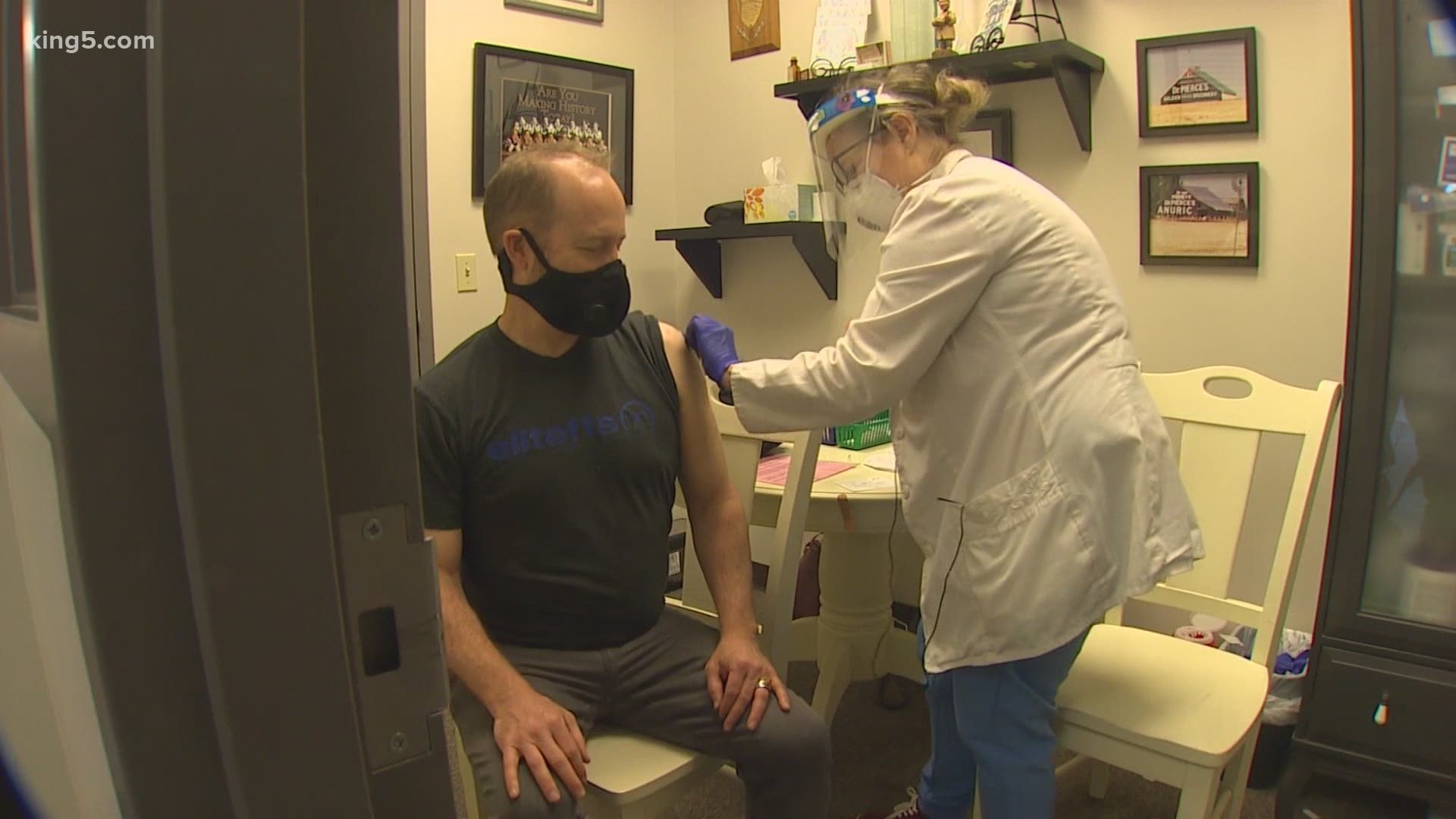OLYMPIA, Wash. — Washington Senate Democrats say they have a plan to rush $2.2 billion of federal COVID-19 relief money to vaccination centers, schools and small businesses during this year's state legislative session.
“We're fast-tracking this budget process,” said Sen. Christine Rolfes (D-Bainbridge Island), chair of the Senate Ways and Means Committee.
The funds are Washington’s share of the $2.3 trillion COVID-19 relief plan President Donald Trump signed into law in December.
Senate Democrats, the majority party in the state legislature, propose the following:
- $618 million for vaccines, COVID testing and contact tracing,
- $668 million to help schools resume in-person learning,
- $365 million would go to rental assistance,
- $240 million would provide grants for struggling small businesses.
The funds “will make sure that when we have the vaccines in the state, when they land here from the federal government, we will have the infrastructure in place to get them out as quickly as we receive them,” Rolfes said.
The money does not fix the problem of limited vaccine supply.
Rolfes said the relief money is enough for the winter, but the Department of Health, which was underfunded at the start of the pandemic, will need more.
“I have told the Department of Health, ‘Tell us what you need, and we will appropriate it,’ because that is the single most important thing right now. We can't have vaccines not happening because of lack of resources,” Rolfes said.
Sen. Lynda Wilson of Vancouver, the Republican leader on the Senate Ways and Means Committee, said these discussions should have started earlier.
“People across our state have had to wait too long for the kind of relief that only the legislative branch can offer. We’ve worked with our Democrat colleagues to create this package, and it reflects some of our suggestions; now the focus needs to be on making the adjustments needed to approve the pieces and getting this assistance to the people who so profoundly need it,” Wilson said.
Rolfes said she hopes to have the money ready for spending next month.
“We're hoping to have a bill to the governor's desk within three weeks if all goes smoothly in the legislature. So mid-February, late-February,” she said.

